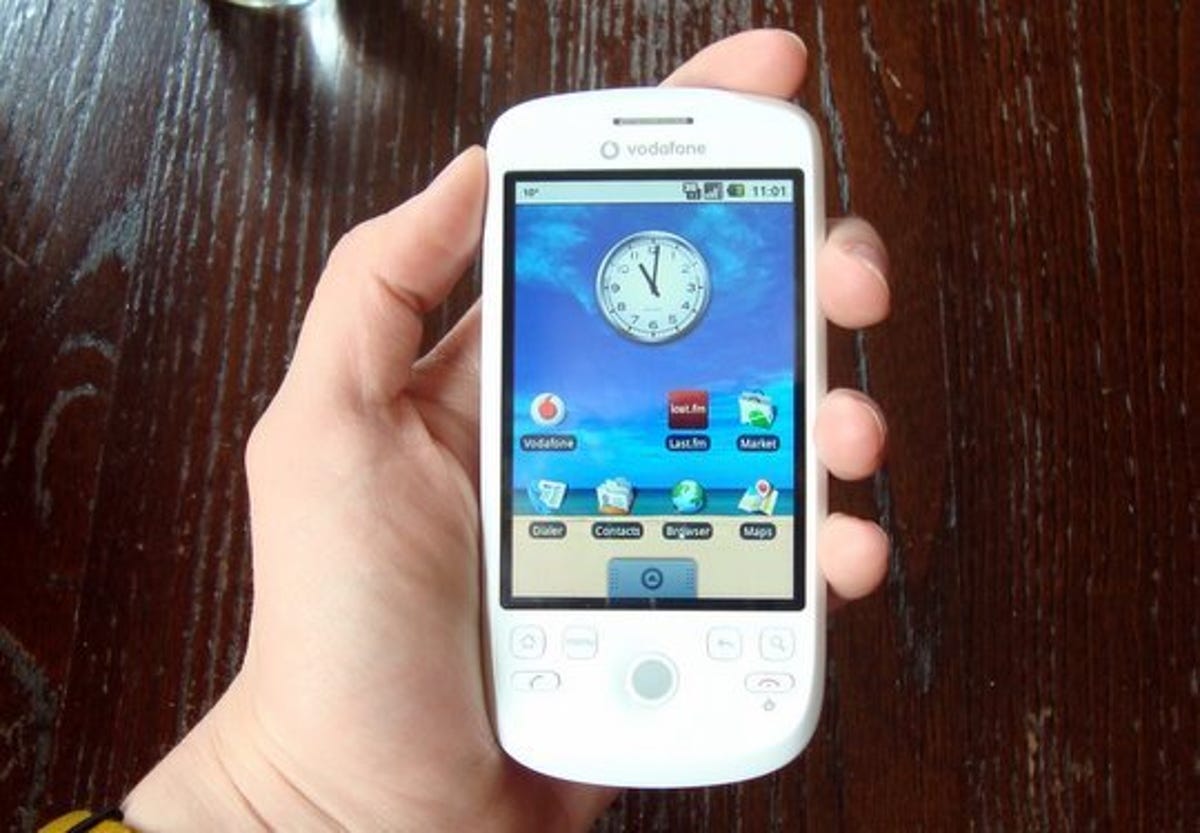
We got our hands on the release version of the HTC Magic today, and every time we see this smart phone, we fall a little bit more under its shiny white spell.
The Magic feels like a huge step forward from the first Android phone, the T-Mobile G1. It's solid, glossy and feels petite in your hand while still having a big, bright screen. It has almost the same user interface, but with all the sugar-frosted improvements of the new Cupcake version of Android.
We loved the integration of Google's amazing range of applications on the handset, from Google Maps to YouTube. Uploading photos and video from the camera to Picasa and YouTube was an easy matter of a couple of taps. There's also a good range of (mostly free) applications to install from the Android Market app store, including the popular Last.fm and Skype, and some amazing Android-only ones. One of our favourites, Shop Savvy, takes a photo of a barcode and finds the best prices online and at local shops -- and then it connects with Google Maps to walk you right through the door of the nearest one.
The Magic uses the same WebKit-based Web browser as the G1, and we're massive fans. In our test, over 3G in central London, complicated sites such as Crave loaded speedily and looked smart. There's a smooth zoom-out feature to see the whole Web page while choosing which area to zoom in on, although there's no multi-touch support, so zooming has to be done with on-screen menus.
We also loved the BlackBerry-like trackball, since Web pages are often full of tiny links that are easy to accidentally click while sliding around with our ape-sized fingertips. The trackball gave us ninja-like accuracy for selecting exactly the link we wanted to click, and moving around the page without selecting anything by mistake.
But it's not all magical cupcakes and happiness. We lamented the lack of an FM radio, a standard 3.5mm headphone jack, and the ability to sync music with a media player that keeps our play counts and ratings -- the Magic can sync via USB, but it's treated like a USB drive, not a media player.
We're also worried about the insistence that we have to sync our calendars and contacts via Google, rather than natively supporting Exchange. That means installing a calendar-syncing app on our Outlook-obsessed work PCs, for example, which not every company would allow, and only being able to sync one calendar. It's all way too locked down for our tastes -- we think we should be wandering free on Android's open-source savannah. There are third-party apps that give Exchange-syncing ability to Android though, and we'll be testing them soon, so stay tuned.
The HTC Magic will be out on Tuesday 5 May from the Vodafone Web site for free on a two-year contract at a very reasonable £35 per month, including 'unlimited' mobile Internet use, 600 minutes and unlimited texts. You can also get £5 off that price if you order online, and we're sorely tempted.
Click through our gallery to see more of the Magic's features in their final, ship-ready incarnations.